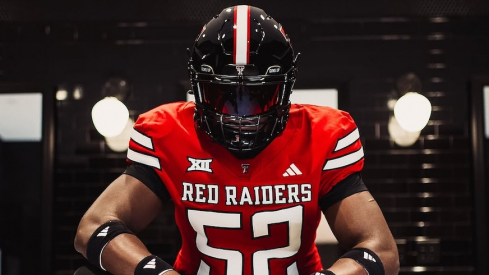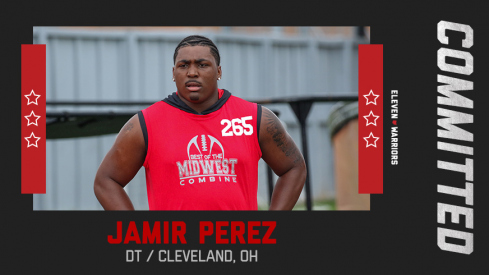 Gotta admit, the dude rocks a suit
Gotta admit, the dude rocks a suitSo, for the purposes of this post, I wanted to find a cool quote about privacy to put in my intro so I might be able to trick some of you into thinking that I'm well read and insightful. Since 10 seconds on Google didn't turn up anything relevant from quote superstar Mark Twain, I went with this one from author David Brin:
"When it comes to privacy and accountability, people always demand the former for themselves and the latter for everyone else."
Which is a pretty good quote that fits in perfectly with my theme today! And since Mr. Brin, science fiction author who lives in Encinitas, California with his wife Cheryl, is so smart, I figured I need more information on the dude. An uncomfortable amount of information.
Literally three minutes later, and I have his home address, phone number, wife's place of employment, and where his youngest son goes to school. I'm reasonably sure where his oldest son works and I'd try and dig up some dirt on his daughter but that just seems a bit much.
Here's the thing, though. There probably aren't a lot of people on this site or in the general population of the planet who really feels the need to know any of that information. David Brin is an accomplished and award winning author. But he's not a football player, so no one cares where the guy walks his dog or if his wife spits her gum out the window of her car or the underpass where his sons roll bones with a gang of bikers every Thursday night.
And that's because David Brin the human is boring. But that's good! Boring is an asset to be cherished. Boring is a warm blanket of social indifference wrapped around you in a cold winter of discontent, and it's way better to be boring and comforted than awesome and freezing your ass off. Okay, maybe only sometimes it is. Being awesome is still pretty awesome.
One of the things that I think all the drama over the Manziels and Hydes and Robys of the world has incontrovertibly proven is that college football players from major programs are essentially state employees. Never mind that they don't make an official salary, the public scrutiny that they face on a regular basis makes them de facto public servants. And as public servants, football players aren't just beholden to the rules that govern their sport and their contract with the university they attend, they're also being made accountable to the scrutiny and standards of society at large.
Which isn't always a bad thing. Most people on this site, and likely elsewhere (excepting insane trolls like Travis/Bayless/Bianchi/etc), agree that the punishment meted out the Carlos Hyde is fair. He's over six feet tall and is at least 240 pounds of scary-ass dude and charges filed or not, he tried to hit a much smaller woman when he had no real need to. If 195 pound, non-famous Johnny Ginter took a swing at a woman in a dank hellhole of a nightclub, I hope that I'd face the same scrutiny from my friends and family.
On the other hand, Ramzy's column from yesterday.
And since I agree with every word that he wrote about the kind of insane microscope that college football players are under, I thought I might take this one step further and envision two worlds: one in which we deserve unfettered access into the daily lives of young adults, and another where we don't. The former is called "horrible nightmare of a world in which we'd all be completely screwed" and the latter is called "real life."
|
College athletes as public servants |
College athletes as college students |
|
|
So one thing you might've noticed about this chart is that the current state of college football is that players lives are effected by rules on both sides. On one hand, they're expected to be the public servants that the media, fans, and the NCAA expect them to be, but on the other hand, we wouldn't find them as interesting if they weren't college students who are prone to doing things that would make a public servant blush.
If a college athlete is going to be expected to be a public servant, with all the expectations and pressures that go along with that, then treat them like one by making what they do a job. If that isn't the expectation, then maybe both fans and the media need to back off more than just a tad. But you can't pick and choose, especially when those in power to do the picking and choosing seem to be doing it with the expressed purpose of finding ways to eliminate monetary options for that athlete.
I'm a high school teacher, my parents are high school teachers, and many of my aunts and uncles are teachers, high school coaches, and administrators in the public school system. Our salaries are a matter of public record, we are beholden to rules and regulations that we have no say in, and our private lives and opinions can cost us our job. But since it is a job, and we do have contracts and unions and lawyers and paid salaries, that's an acceptable part of the privilege of teaching.
The response to this is that it's a privilege to play college football, that the joy of being lauded by millions is enough recompense to make up for all the inanities of the NCAA system. 15 or 20 years ago I might've agreed with that, but the math has changed. More and more is being demanded from players in terms of privacy, time, and whatever standards the internet has decided to arbitrarily place on an athlete (note: these standards change for every player). The idea that they aren't as accountable as any other publicly paid employee is dead wrong.
I understand that it scares some people to point out that the concept of the student-athlete is dead. There's something special about the idea of someone working as hard in the classroom as they do on the field, which earns the Renaissance Man adoration that we pile on athletes. And maybe that's the concern; that if we admit that they're really just professionals no one pays, it somehow cheapens the experience.
But that's the reality. College athletes, particularly college football athletes at big name schools, are now public servants with little expectation of privacy and a disproportionate amount of accountability. If we are going to expect professional behavior from guys like Manziel and Hyde and Roby, then let's start treating them like professionals.

